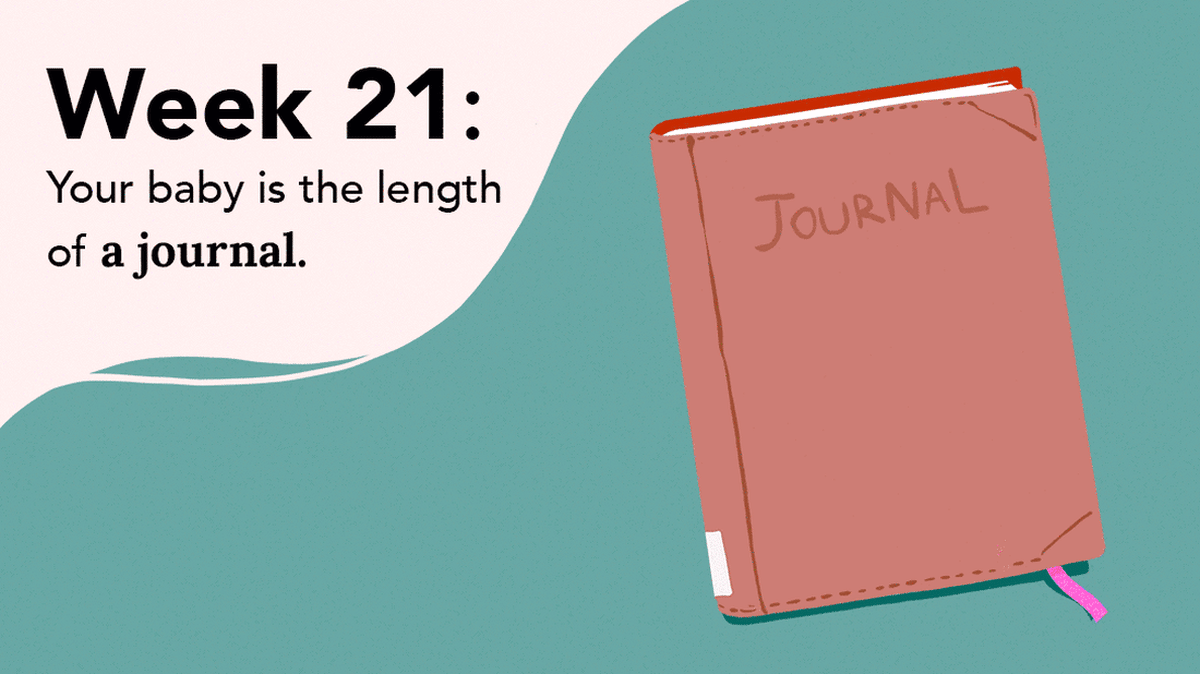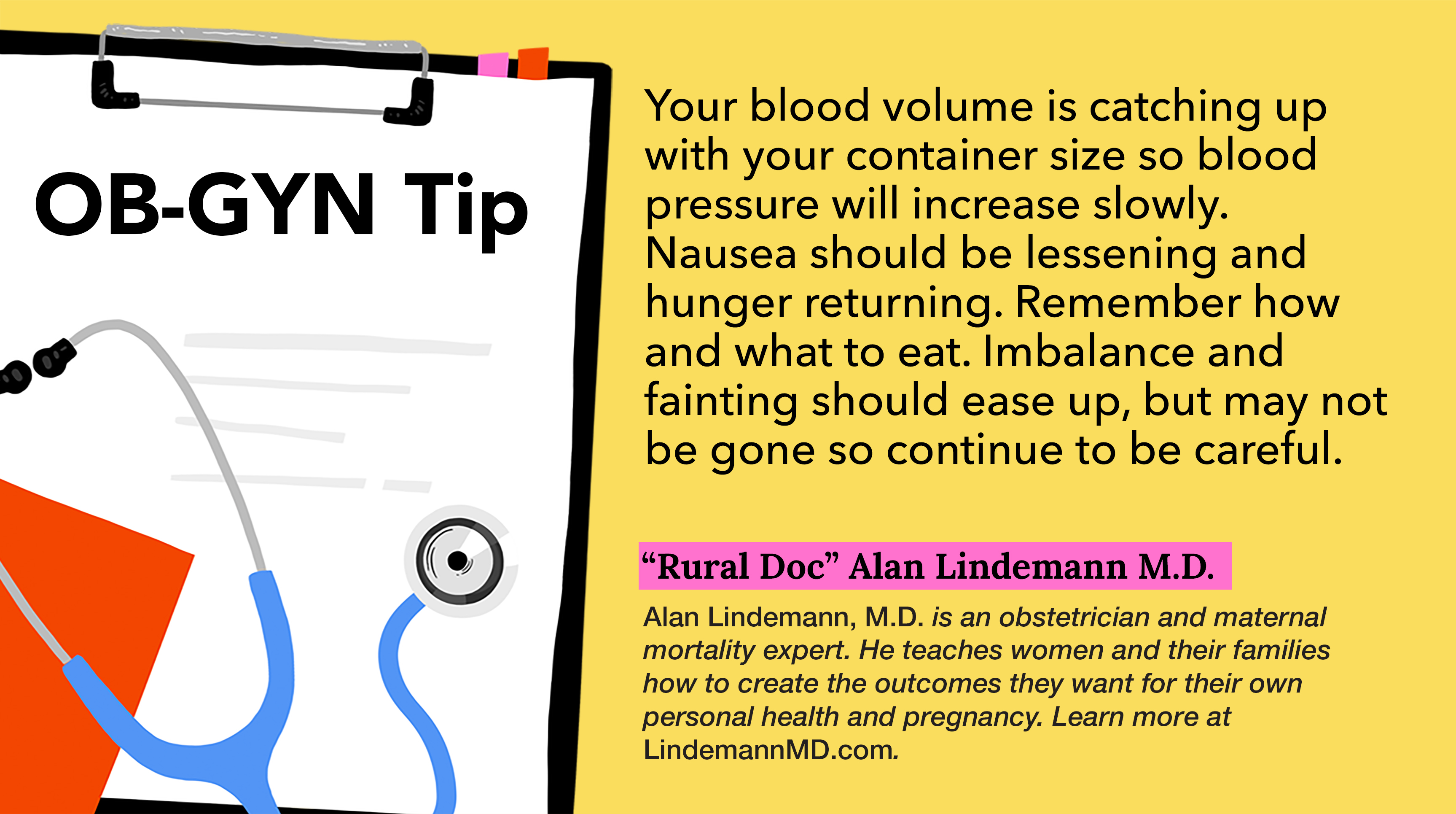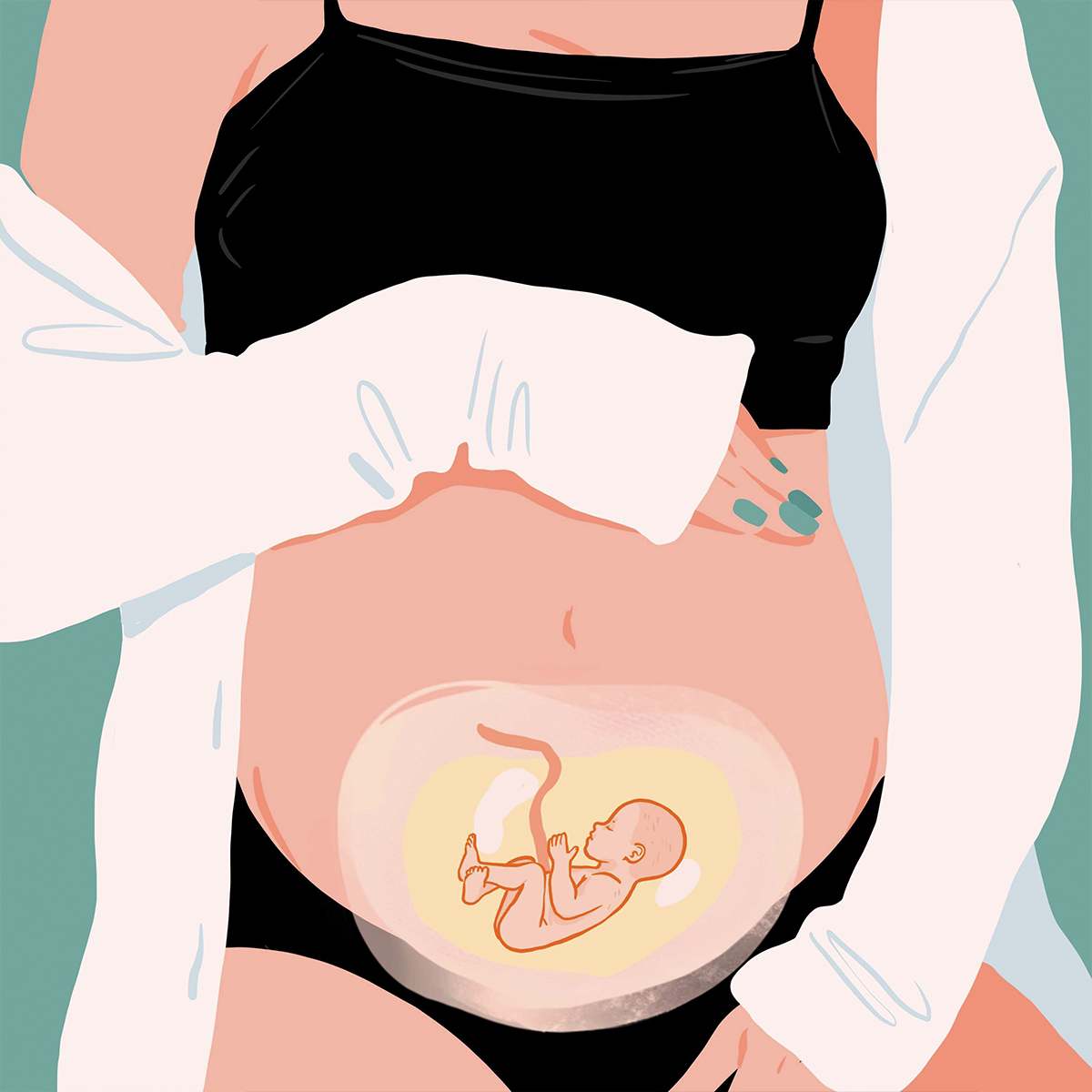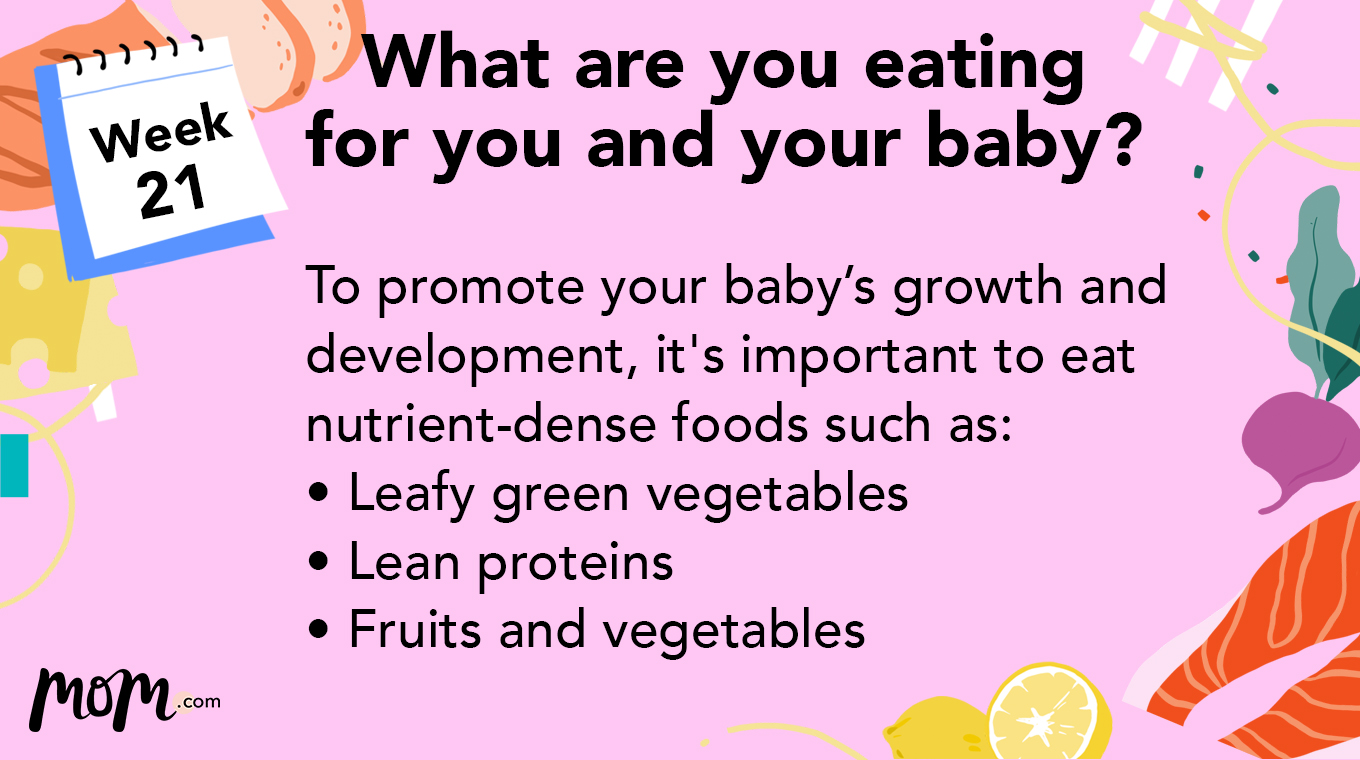
In this article
You're 21 weeks pregnant!
You’re 21 weeks pregnant and your baby is the size of a planner or journal. You’re likely feeling quite a bit of movement lately as your active making coordinated arm and leg movements. Baby is turning and flipping around, and you may notice that sometimes what you eat, will affect your baby’s movements.

Pregnancy symptoms at 21 weeks
At this stage of your pregnancy, some symptoms aren’t actually so bad. You may notice that your fingernails and hair are growing quickly (though don’t get too excited, many moms go on to experience postpartum hair loss). Your 21 week belly may feel itchy and dry and you might start feeling Braxton Hicks contractions more often.
Braxton Hicks contractions
You may start to feel Braxton Hicks contractions regularly now. So, how can you tell Braxton Hicks from the real thing? Braxton Hicks contractions can often be alleviated by drinking a glass of water. Staying hydrated is key at this stage of our pregnancy and as long as the contractions don’t increase in intensity, it’s completely normal at 21 weeks.
Itchy belly
Your 21 week pregnant belly is growing and as a result, your skin may start to feel itchy and dry. Make it a habit to use cocoa or shea butter on your growing belly throughout the pregnancy. This should help alleviate the dryness and some moms notice a decrease in stretch marks when using thick, moisturizing, all-natural butters.
What does 21 weeks equal in months?
So, how many months is 21 weeks pregnant? Right now you’re right on the cusp of being 6 months pregnant. Not only do you look pregnant, but you’re likely starting to feel pregnant as well. As your center of gravity has changed, it’s always important to be cautious going down the stairs, since your balance may likely be off these days.
Your ultrasound
An ultrasound right now might show all of the amazing development your baby is going through. A 21 week fetus is busy preparing for life outside the uterus; your baby’s digestive system is developing. You’ll be able to see the chambers of your baby’s heart as well. Depending on your background, history, and even age, your doctor may suggest a variety of tests at this stage of your pregnancy. Sometimes amniocentesis or CVS is done, other times testing can be done with your blood sample. Your doctor may check for Down syndrome, trisomy 18, or trisomy 13.
Your pregnant belly at 21 weeks

So your breasts are growing and you may notice splotchy or veiny skin on your chest as well as stretch marks both on your chest and belly. Some moms-to-be even begin to notice stretch marks and spider veins on their legs at this stage of pregnancy as well. Check with your doctor if you have concerns, compression socks may help or your doctor may suggest cutting back on salt or keeping your legs elevated when you can, to alleviate pressure.
Pregnancy tips at 21 weeks
- Keep drinking that water to keep Braxton Hicks contractions at bay and to ensure optimal health.
- You may want to consider some light exercise like yoga, swimming or walking, especially if you’re having circulation issues in your legs and feeling uncomfortable.
Your pregnancy checklist at 21 weeks
- If you haven’t already, it’s time to schedule your glucose tolerance screening. This screening will check for gestational diabetes by looking for high levels of glucose that could indicate a risk of developing gestational diabetes. It’s usually performed between week 24 and week 28.
What are you eating for you and your baby?

It’s important now more than ever to ensure you’re eating nutrient-dense foods. Proper nutrition can help promote your baby’s growth and development. The U.S. Department of Agriculture offers a division of the MyPlate initiative called MyPlate for Moms. The site, for pregnant and breastfeeding moms, offers information about healthy eating and offers nutritional resources for moms to be. Nutrient-dense foods include:
- Leafy green vegetables
- Lean proteins
- Fruits and vegetables
When to call your doctor
Any unusual symptoms at 21 weeks pregnant could be valid reasons for contacting your doctor. Sudden swelling anywhere on the body or significant weight loss or weight gain are all valid reasons to at least check-in. If you notice a change in baby’s movement, that makes you uncomfortable, a quick call to the doctor is always recommended.
- Bleeding
- Chills or fever
- Severe abdominal pain
Pregnant women are at a higher risk of illness as a result of a COVID-19 diagnosis and those diagnosed with COVID-19 have an increased chance of delivering pre-term (before 37 weeks), according to the Centers for Disease Control and Prevention (CDC).
Note: If you are visiting your doctor during COVID, be sure to confirm that the doctor’s office is following COVID protocols as indicated by the CDC.
Additional concerns: BIPOC pregnancy
According to the Center for Disease Control and Prevention (CDC), Black women are three to four times more likely to die during pregnancy or from childbirth-related causes than their white counterparts. Health disparities in the Black community contribute in part, however, racism is also a factor. The CDC is working to bridge these gaps and conducts pregnancy-related surveillance to better understand risk factors and the cause of pregnancy-related deaths.






